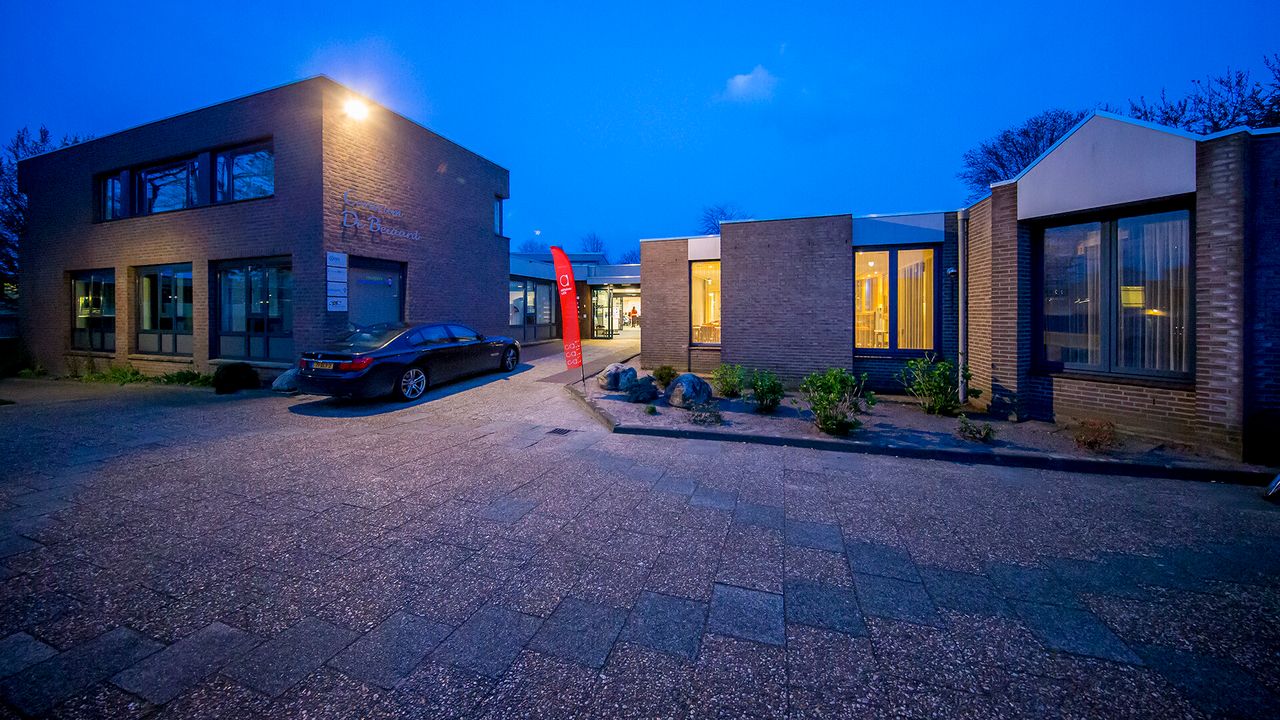The fact that the Alzheimer Café in Asten on Tuesday 1 November was less crowded than at previous meetings was not, given the subject matter, a surprise for the ACP working group.
Dementia in the elderly is very common and almost everyone knows someone who suffers this fate. Only (?) 6% of people with dementia are young, so far fewer people face this problem. But that percentage means that there are still around 15,000 young people (under 65) in the Netherlands who have been diagnosed with dementia. A slightly less eventful meeting, but no less interesting for those present. In addition to the fifteen volunteers, there were about 35 guests; partly regular guests, but there were also new and relatively young faces from the participating municipalities from Asten, Deurne and Someren and this time also from Eindhoven.
Before the break, moderator Jac Huijsmans spoke with Martine Doorenbosch (head of the dementia case at Zorgboog) and Franca Knapen (nurse for young people with dementia, who works in Mariëngaarde in Aarle-Rixtel). It has become clear that, just like in the elderly, various forms of dementia occur and that Alzheimer’s disease is the cause in most cases. While older people often think in the direction of dementia with reduced memory and some behavioral changes, this is not the case with younger people. How it works: Sometimes you forget things, you have less energy, you act insecure, you show less initiative, maybe you are less empathetic, but then you don’t immediately think about dementia. Even the general practitioner and the occupational health and safety doctor do not do this for a young person. So all kinds of help, guidance or medication are provided first for, for example, physical symptoms, burnout disorders or depression. If these don’t help and the symptoms worsen, dementia research has only begun. It can take years before the diagnosis is made. It can be five to ten years, as it turns out by looking back at the first symptoms. This period is very difficult for the person with dementia, but also for the environment, especially for the family and work. At work, these (initially unexplained) changes can create friction. In some cases this leads to bullying behavior towards the person concerned or ignorance. Not infrequently, the person with burnout complaints ends up at home or ends up being sidetracked. In many cases it leads to a feeling of loneliness and depression.
The impact on the family is also great. The person with dementia (not yet diagnosed) usually has a partner and often children living in the home as well. The partner sees his lover change and has no explanation for this. Cancellation may occur. Children also see their parent change and notice that they can no longer fulfill their parenting role (well). Sometimes they feel ashamed and stop inviting friends to play. They can suffer so much that academic performance deteriorates. When the diagnosis finally comes, it can explain a lot and lead to understanding.
Help may consist of medications that slow the process, but even more so in guidance for the person with dementia and their environment. It is difficult to say in general what this guide should look like, because it is different for every person and situation. Daytime activities can be important. The starting point is to give the person with dementia the feeling that they are understood, that they can be present, that they are important and that they are looking for a pleasant way to fill their days, with particular attention to the things that he / she can do.
We must also take care of the partner and children: they too have their own life (work, school, hobbies) and cannot be just caregivers. It is not sustainable. Relieving them in part by activating daytime activities can provide relief.
The questions were asked in the second part of the meeting. A lot has happened. Issues such as heredity and genetic testing, medications, possible financial consequences, partner’s situation and encounters with other patients were discussed. The input came not only from the guest speakers, but also from the visitors, making the meeting alive and meaningful, which ended with the presentation of some bouquets and with the always captivating song ‘Hide but with me’ by Pro et Contra .
Closing anniversary of the ACP year
The ACP on Tuesday 6 December is dedicated to the fifth anniversary of Alzheimer’s Café Peelland.
Then there is a play by the Theater Aan De Lijn. Two sisters and a brother, all three elderly, try to find out who has dementia. It will be a cheerful and clownish performance. Recommended. The show takes place at the De Beiaard Service Center in Asten, starts at 7:30 pm (doors open from 7:00 pm) and ends at 8:30 pm. This time we don’t start with a cup of coffee, but then we have a drink and then there is the opportunity to talk.


